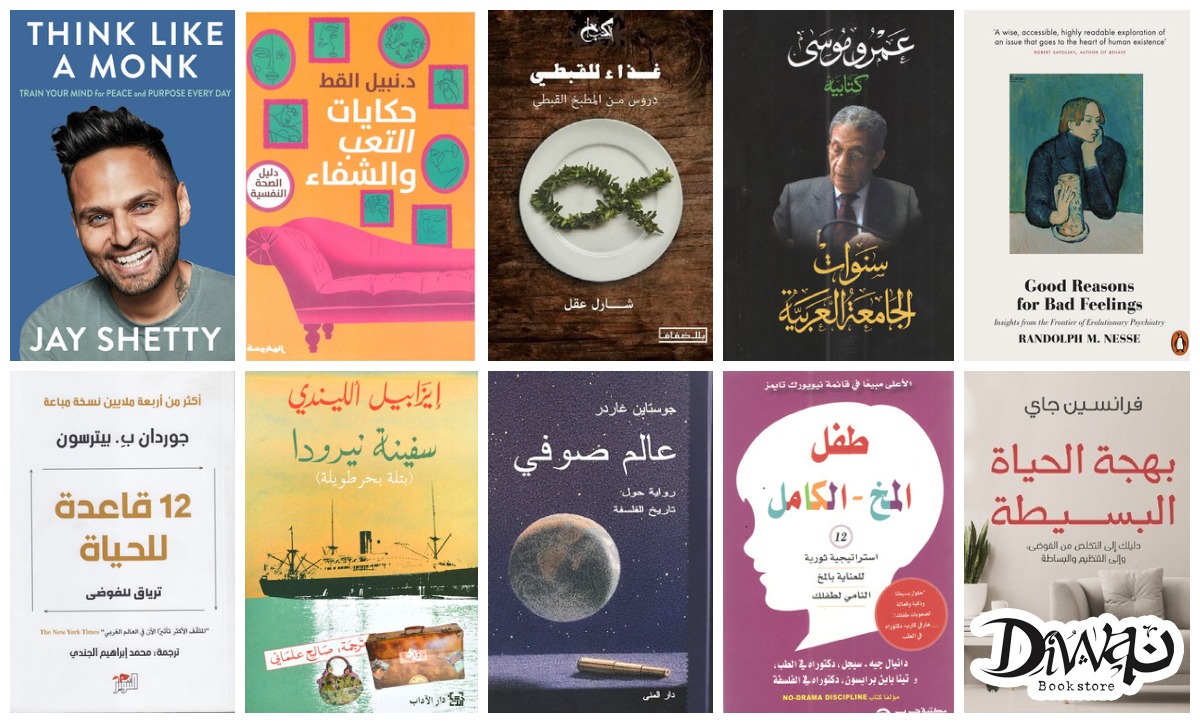“Moqtanayat Wust el-Balad” (Downtown Collection) by Mekkawi Said. This collection of short stories from the award-winning author of “Swan song” is a colorful portrait of characters, local talents, writers, communists and striving artists who find comfort and companionship in downtown Cairo’s cafes and cultural centers. The writer spent the last of the three years writing the book researching downtown's cafes and bars, relying mainly on word of mouth to locate the often well-hidden spots.
“El-Ragol Zul Badla el-Baydaa el-Sharkskin: Waqaea Khoroug Aeila Yahodia Men Misr” (The Man in the White Sharkskin Suit: A Jewish Family's Exodus from Old Cairo to the New World) by Lucette Lagnado. A fascinating tale of an Arab-Jewish family emigrating from Egypt after the revolution, Lagnado’s memoirs pay homage to her Egyptian father, Leon Lagnado, who, until the day he died, dreamed of returning to Egypt. The book describes the happier life they left behind in Cairo, a cosmopolitan melting pot where all people of all nationalities and religions lived in relative harmony.
“Saint Theresa and Sleeping with Strangers” by Bahaa Abdel Hamid. Two completely different short stories are linked together by the author’s clever writing in “Saint Theresa and Sleeping with Strangers.” Abdel Hamid’s love of detail and his unique style bring the reader close to his characters, and the content of the singular stories accurately depict certain trends in Egyptian society past and present, like poverty and political oppression.
“Henama Kan Lel Shawarei Asmaa” (When Streets Had Names) by Randa Abdel Fattah. Abdel Fattah, a young Palestinian-Egyptian author living in Australia, describes the journey of 13-year-old Hayaat and her best friend Samy to Jerusalem in her novel “When Streets Had Names.” The books focuses on the human element in Palestine–the part mostly kept out of the news–the daily errands, weddings and game nights. But always present, even in this novel of social interaction, are soldiers and checkpoints, the dusty roads and the old buses that traverse them.
“Munira’s Bottle” by Youssef al-Mohaimeed. In al-Mohaimeed’s novel, a beautiful, unmarried Saudi woman is deceived into marrying a young man outside her social circle. The novel touches upon many delicate aspects of the Saudi society, like sexual oppression, lesbianism, superstition and hypocrisy. Females assume few or no political roles, as they are constantly pushed downward by a dominating male figure.
“Fel Mamnoo” by Magdy Mehanna. A collection of articles by the late Magdy Mehanna–published by Al-Masry-Al-Youm–“Fel Mamnoo” devotes its nine chapters to various political, social, religious and regional topics. Most of Mehana's articles are critical of the government, expressing his concerns about Egypt's future and the increasing influence of presidential scion Gamal Mubarak in national politics.
The Collected Work of Badei Khairy. This collection presents the complete work of renowned poet, song writer and playwright Badei Khairy (1893-1965). Most of Kheiry's work documented the life of the average Egyptian citizen, the poverty and the struggle against British occupation and the monarchy. Despite the simplicity of his words, Kheiry's songs, plays and poems were balls of fire thrown at his targets. The rich social and political arena gave Kheiry's talent a chance to blossom. The book is the best collector’s piece of the year.



